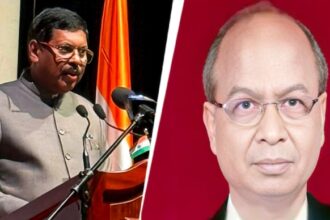In a world ruled by clicks, clout, and digital currency, turning 18 is no longer just a symbolic step into adulthood. For many young influencers today, it has become a launchpad into the booming adult content industry particularly as an OnlyFans model. This shift in cultural norms is generating both fascination and concern, especially as stories of overnight millionaires light up social media feeds.

From Meme Queens to Monetized Bodies
The internet’s ability to catapult teens to fame is nothing new. From the wild braggadocio of “Lil Tay,” once dubbed the “youngest flexer of the century,” to the rise of YouTubers and TikTokers with millions of followers before they finish school, online virality has become a teenage dream and sometimes a nightmare.
Lil Tay, who rose to fame at age 9 by flaunting wealth, represents the early stages of this culture: performative success, shock value, and viral marketing. While she has since faded from mainstream attention, the cultural environment that created her is alive and thriving.
Now, that energy has evolved into something more monetized and more adult.
The OnlyFans Model Boom
OnlyFans, originally launched in 2016 as a platform for exclusive content, has now become nearly synonymous with adult entertainment. Its biggest stars often earn millions monthly, and a rising subset of these stars are OnlyFans models who joined the day they turned 18.
This has created a phenomenon where young influencers, often female, pre-announce their plans to launch on OnlyFans as a rite of passage. Within hours, they rake in tens of thousands of dollars through subscriptions, private messages, and tips.
A viral screenshot recently showed one 18 year old creator earning over $1 million, with $511,003.79 from subscriptions and $486,558.11 from messages. The staggering numbers continue to pull more teens into the idea of becoming an OnlyFans model, raising ethical questions.

Money, Choice, and Consent
Supporters argue that becoming an OnlyFans model is a form of empowerment. It allows young women and men to own their content, set their prices, and avoid exploitative industry practices. Unlike traditional adult entertainment, OnlyFans gives creators more control.
Critics, however, argue that society has glamorized a dangerous path. “Just because someone turns 18 doesn’t mean they understand the long-term consequences of selling adult content,” says Dr. , a clinical psychologist specializing in adolescent behavior. Shonee Kapoor also criticised this.
The legal age of consent may be 18, but critics argue that maturity isn’t always aligned with age especially when clouded by fame, peer pressure, or financial desperation.
Role of Fame Culture
Lil Tay’s journey is symbolic of the larger issue: the internet often rewards provocation over principle. While she was not involved in adult content, her online presence was fueled by controversial, attention grabbing stunts mirroring what many now do in the adult creator economy.
The path from child star to adult content creator isn’t guaranteed, but the transition from online fame to monetized sexuality is happening faster than ever before. For every Lil Tay who fades, there are others ready to fill the vacuum, now with adult platforms as their launchpad.
Digital Capitalism at Its Peak
The rise of the OnlyFans model is a product of digital capitalism. As traditional job markets shrink and college debt looms, teens are seeking alternative income routes. Social media algorithms reward shock, beauty, and virality, creating a fast track to both money and burnout.
The result? Young adults treating their bodies as brand assets sometimes before they’ve fully developed a sense of identity.
Where Do We Go From Here?
The emergence of 18 year olds immediately becoming an OnlyFans model raises important social questions. Is this the new normal? Should society introduce age buffer periods before joining adult platforms, or should we focus on better education and consent awareness?
As we ponder these questions, one thing is certain: the line between fame and monetization has blurred beyond recognition. And as influencers like Lil Tay once symbolized early internet excess, today’s OnlyFans model represents the latest evolution one with even higher stakes.
Stay connected with The News Drill for more updates.

















